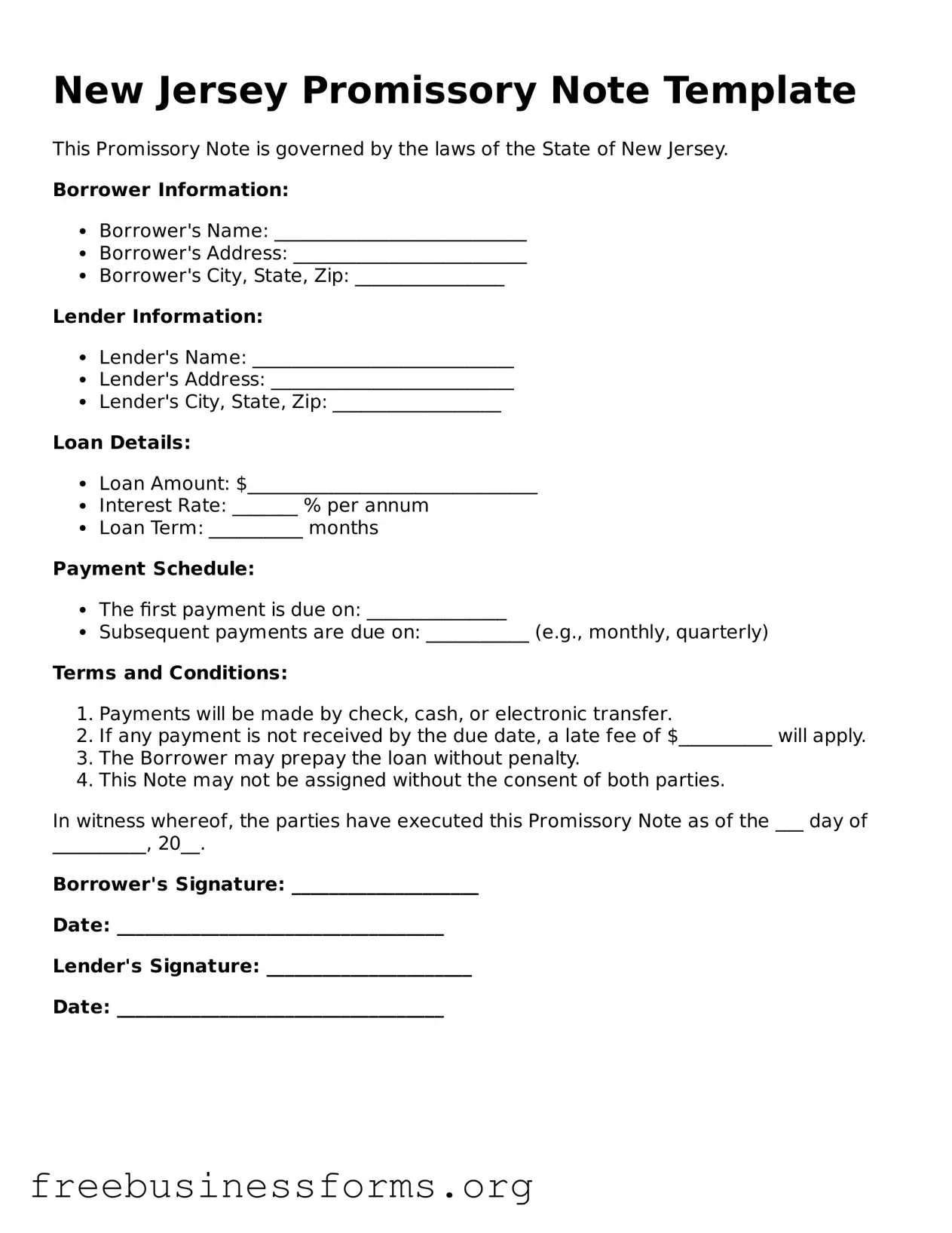Blank Promissory Note Template for New Jersey
A New Jersey Promissory Note is a written promise to pay a specified amount of money to a designated party at a certain time or on demand. This legal document outlines the terms of the loan, including interest rates and repayment schedules, ensuring clarity and protection for both the lender and borrower. Understanding this form is essential for anyone involved in lending or borrowing money in New Jersey.
Open Form Here

Blank Promissory Note Template for New Jersey
Open Form Here

Open Form Here
or
↓ PDF File
Quickly complete this form online
Complete your Promissory Note online quickly — edit, save, download.